AESA PROGRAMMES
- Building R&D Infrastructure
- Developing Excellence in Leadership, Training and Science in Africa (DELTAS Africa)
- Human Heredity and Health in Africa (H3Africa)
- Africa’s Scientific Priorities (ASP)
- Innovation & Entrepreneurship
- Grand Challenges Africa
- Grand Challenges Innovation Network
- Rising Research Leaders/Post-Docs
- AESA RISE Postdoctoral Fellowship Programme
- African Postdoctoral Training Initiative (APTI)
- Climate Impact Research Capacity and Leadership Enhancement (CIRCLE)
- Climate Research for Development (CR4D)
- Future Leaders – African Independent Research (FLAIR)
- Critical Gaps In Science
- Clinical Trials Community (CTC)
- Community & Public Engagement
- Mobility Schemes: Africa-India Mobility Fund
- Mobility Schemes: Science and Language Mobility Scheme Africa
- Research Management Programme in Africa (ReMPro Africa)
- Science Communication/Africa Science Desk (ASD)
- Financial Governance: Global Grant Community (GGC)
- AAS Open Research
- CARI Programmes
- Evidence Leaders Africa (ELA)
Mobility Schemes - Africa-India Mobility Fund
The Africa-India Mobility Fund (AIMF) was a two-year programme designed to provide researchers from Africa and India with opportunities for short visits in either direction to explore opportunities for building and strengthening scientific collaboration.
The initiative by the African Academy of Sciences and the Wellcome Trust/DBT India Alliance (India Alliance) encouraged South-South collaborations and learning between the two ecosystems. This was in recognition of the fact that Africa and India faced similar challenges, both in the diseases that affect their populations and socio-political issues, as well as the leadership required to address these. The exchanges enhanced their skills and contributed to the growth of knowledge and leadership towards common health challenges.
At the AAS, the programme was implemented through the Alliance for Accelerating Excellence in Science for Africa (AESA), an initiative of the African Academy of Sciences (AAS) and the New Partnership for Africa's Development (NEPAD) Agency.
Meet the Team
The Africa-India Mobility Fund (AIMF) was a two-year programme designed to provide researchers from Africa and India with opportunities for short visits in either direction to explore opportunities for building and strengthening scientific collaboration. This programme was completed.
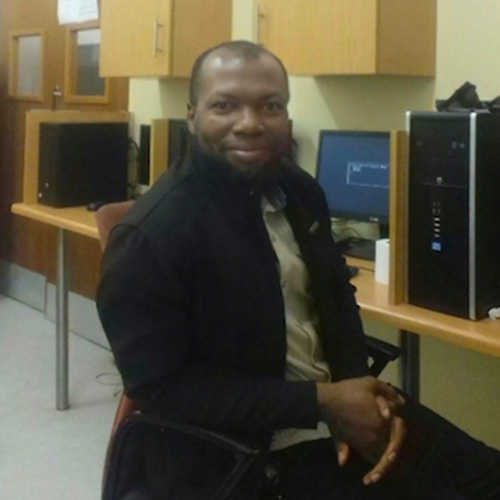 Elias Emeka Elemike
Elias Emeka Elemike Nigeria
Cohort 1
Project: Development of reduced graphene oxide-Ag-ZnO nanocomposites for multifunctional antimicrobial, photocatalytic and sensing applications
Elias Emeka Elemike is a Lecturer at the Federal University of Petroleum Resources in Nigeria and a postdoctoral researcher at the North West University Mafikeng campus, South Africa. The holder of a PhD in inorganic chemistry has worked in different universities since 2012. He is so keen on green nanotechnology for various applications and has published more than 35 articles in peer reviewed journals. He has several international collaborations, including with China’s South East University and South Africa’s University of Kwazulu-Natal and the Nelson Mandela University, among others. He is a motivator, a great team-player and passionate for the well-being of the less privileged.
Project: Development of reduced graphene oxide-Ag-ZnO nanocomposites for multifunctional antimicrobial, photocatalytic and sensing applications
Elemike will be working at SN Bose National Centre for Basic Science Kolkata India with Arup Kumar Raychaudhuri and Barnali Ghosh on reduced graphene oxide-Ag-ZnO nanocomposites for multifunctional antimicrobial, photocatalytic and sensing applications. Such nanocomposites will be valuable in overall purification of waste water as it will detect possible contaminants through sensing methods, degrade dyes by photocatalytic means and deactivate pathogens due to the expected antimicrobial properties. Water purification is still a global challenge especially to the developing countries and this research is expected to use cheap methods to address such problems.
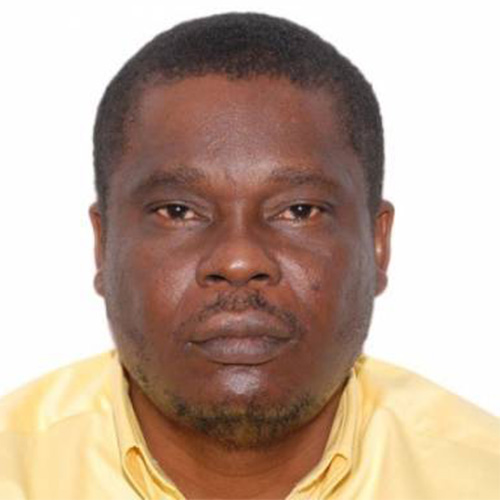 Eric Ogola
Eric Ogola Kenya
Cohort 1
Project: Cutting-edge genomic technology to identify genes responsible for AMR in children and their mothers
Eric Ogola is a research scientist with special interest in one health and antimicrobial resistance (AMR). He also works as a Lecturer in the Department of Public and Community Health at Jaramogi Oginga University of Science and Technology, Kenya. His current research interest is on mortality reduction in neonates and mothers through targeted innovations.
Project: Cutting-edge genomic technology to identify genes responsible for AMR in children and their mothers
Ogola is a recipient of the Africa-India Mobility Fund. This coming year, he will be making a 30-day collaborative visit to the National Centre for Microbial Resources (NCMR) in Pune, India. Ogola is collaborating with Yogesh Shouche, the Director at NCMR and a renowned microbiologist and Professor at Pune University. They are using cutting-edge genomic technology to identify genes responsible for AMR in children and their mothers. This aims to reduce mortality while improving antimicrobial stewardship.
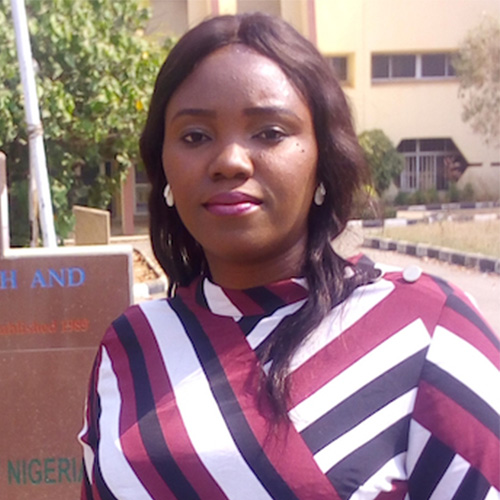 Ifeoma Ezenyi
Ifeoma Ezenyi Nigeria
Cohort 1
Project: Malaria research capacity strengthening for antimalarial drug discovery
Ifeoma Ezenyi holds a bachelor’s degree in Pharmacy and presently works in Nigeria as a Senior Research Fellow with the Department of Pharmacology and Toxicology, National Institute for Pharmaceutical Research and Development. Since completion of her doctoral studies in 2015 from the University of Nigeria, Nsukka; Ifeoma has worked extensively in the field of drug discovery from natural products. Her main focus is the discovery of safe and effective alternatives for the treatment of malaria and she has identified antimalarial constituents of different medical plants and elucidated their effects. In the course of her career, Ifeoma has received sponsored training from the National Chemical Laboratory in India; Kumasi Center for Collaborative research in Ghana and The Medical Research Council Unit in The Gambia. She is also a recipient of the prestigious L’Oreal UNESCO regional fellowship for women in Science (sub Saharan Africa) and an individual research grant from the International Foundation for Science, Sweden.
Project: Malaria research capacity strengthening for antimalarial drug discovery
Ifeoma will work with Vinay Verma and Shailja Singh of the Special Centre for Molecular Medicine, Jawaharlal Nehru University (JNU), New Delhi, India. During her stay, she will also visit the National Institute for Malaria Research to facilitate knowledge sharing on malaria research between their research groups. The scope of the project includes testing natural compound libraries to identify new leads and their parasitic targets. She will also receive training on handling and processing of clinical isolates and applying best practices in antimalarial research laboratory management.
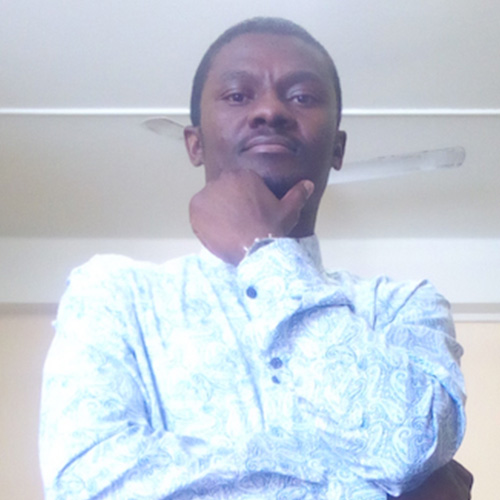 John Osei Sekyere
John Osei Sekyere Ghana
Cohort 1
Project: Investigation into Mycobacterium tuberculosis and other bacterial pathogens in the context of host-pathogen interactions, host-microbiome and pathogen-microbiome interactions, and genome editing techniques
John Osei Sekyere is a Ghanaian pharmacist (B. Pharm) and clinical/medical microbiologist (PhD) with especial interest and skill in antimicrobial resistance, infectious diseases epidemiology and diagnostics, host-microbiome interactions and bacterial genomics. He is currently with the Department of Medical Microbiology, University of Pretoria, where he supervises postgraduate students and researches on microbiomics (gut-lung axis), genomic epidemiology of bacteria, and One Health antimicrobial resistance using next-generation sequencing and bioinformatics. His current projects include hunting for adjuvants that can modulate or synergise the efficacy of approved antibiotics to combat multidrug-resistant bacteria, probiotics and vaccine research, microbiome-immunity-drug interactions in the host etc.
Project: Investigation into Mycobacterium tuberculosis and other bacterial pathogens in the context of host-pathogen interactions, host-microbiome and pathogen-microbiome interactions, and genome editing techniques
Sekyere has been awarded an AIMF grant to travel to the Central Drug Research Institute and the Translational Health Science and Technology Institute in India to undertake training in microbiomics, immunology, animal models of tuberculosis, and CRISPR interference to silence or modify the genome of Mycobacterium tuberculosis. He will be visiting Amit Misra of the Central Drug Research Institute at Lucknow, India, and Nisheeth Agrawal of the Translational Health Science and Technology Institute based in Delhi, India. This collaborative visit is being funded by the AAS-AIMF award for a period of 42 days to establish research collaborations between these two institutions and the Department of Medical Microbiology at the University of Pretoria, South Africa. These collaborations shall lead to the exchange of ideas and research technology/skill to advance investigations into Mycobacterium tuberculosis and other bacterial pathogens in the context of host-pathogen interactions, host-microbiome and pathogen-microbiome interactions, and genome editing techniques.
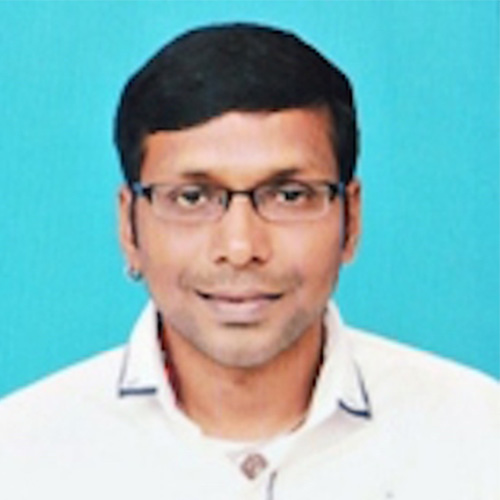 M.V.N.L. Chaitanya
M.V.N.L. Chaitanya India
Cohort 1
Project: Drug discovery of human dual topoisomerases inhibitor and DNA caspase activator from Rosmarinus officinalis and its formulation development using modern and traditional concepts
Chaitanya is an academic researcher and pharmacognosist with 10 years’ experience in teaching, quality control and research on traditional medicine, natural products, drug discovery, ethno-pharmacology, isolation and characterisation. Chaitanya completed his PhD in pharmacognosy and phytomedicine from JSS Academy of Higher Education & Research (Formerly Known as Jagadguru Sri Shivarathreeshwara University), Mysuru, India and is currently the Head of Phytomedicine & Phytochemistry division RERDS-CPR at RIPER. His current research interests include discovery of potent anticancer leads and drugs (human dual topopoisons & DNA caspase promoters) from nature like holistic plants, weeds, algae, fungus, crystals and minerals. Chaitanya is recipient of many scientific awards and also serves as an editorial member on various standard publishing groups.
Project: Drug discovery of human dual topoisomerases inhibitor and DNA caspase activator from Rosmarinus officinalis and its formulation development using modern and traditional concepts
Chaitanya is working on the drug discovery and traditional formulation development of anticancer natural drugs, with multi-targeting approach, targeting human DNA topoisomerases and caspases along with Indian and African collaborators. As multi-targeting approach of anticancer drugs is in high demand and biomedical researchers and medical professional world over are working towards developing solutions to aid holistic preventive care. His proposed project at University of Ghana, Ghana in collaboration with Dr. Dorcas Osei-Safo, will lay a platform for the basis of a development of anticancer elixir using modernised traditional concepts.
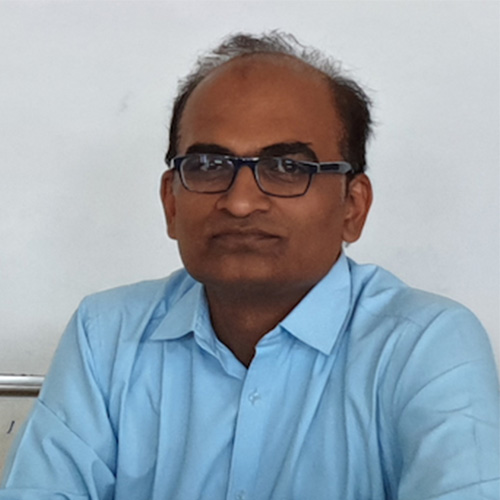 Ganesh Bhutkar
Ganesh Bhutkar India
Cohort 1
Project: Prototype Design of Mobile app for Mothers of Preterm Infants
Bhutkar is an Indian usability researcher and academician. He is the Coordinator, Centre of Excellence in Human Computer Interaction (HCI) and also, Assistant Head (Research), Department of Computer Engineering at VIT, Pune, India. His research work mainly focuses on HCI, assistive technologies and medical applications / usability. He has PhD in HCI from Indian Institute of Technology (IIT), Bombay, and has more than 20 years’ of experience in academic and research activities. Bhutkar is an active member of the Association for Computing Machinery (ACM) and Special Interest Group on Computer-Human Interaction (SIGCHI). Recently his research team developed a utility Android app - Eye+, for visually impaired users. This app has more than 6000 downloads and was also nominated for a National Award in 2018. He has received several international invitations / travel grants from SIGCHI, EIT and IFIP in conferences and other events in Europe, Asia and Africa.
Project: Prototype Design of Mobile app for Mothers of Preterm Infants
Through AIMF, Bhutkar will be collaborating with Dr. Melissa Densmore, an ethnographer with experience in Human Computer Interactions at University of Cape town, South Africa. Bhutkar and his research team is currently developing a mobile app for mothers of preterm infants at Centre of Excellence in Human Computer Interaction, VIT Pune, India. An initial version of paper prototype of this application in local Indian context has been developed. A preterm birth of infants is a significant public health issue in developing countries in Asia as well as Africa. Mothers of preterm infants and their families face several problems which is leading to a high-level of mental stress. These problems include absence of messaging and/or calling services in emergency, poor channels of communication with physicians, no platform for experience sharing, lack of understanding about infant growth tracking and shattered confidence of mothers. This prototype design of mobile app for mothers of preterm infants include several facilities for ‘Save Our Souls’ (SOS), user guide, growth tracking, experience sharing and mother’s health monitoring, improving their work engagement and communication with assigned physicians. This app aims to reduce mental stress of these mothers of preterm infants. The plan is to also extend this app in local African context through a collaboration with University of Cape Town (UCT), South Africa.
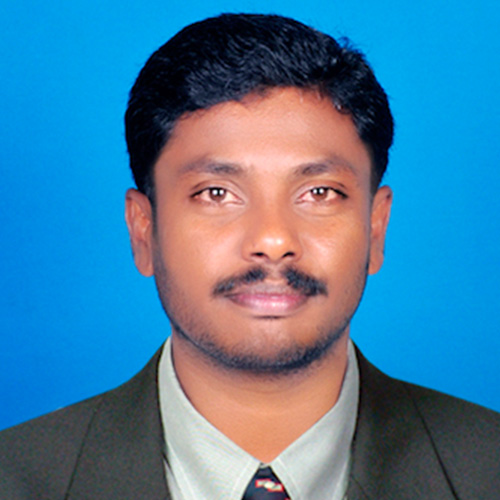 Mariappan Rajan
Mariappan Rajan India
Cohort 1
Project: Design and development of multi-properties encompassing materials for diabetic ulcers tissue engineering
Rajan is currently an Assistant Professor at the Department of Natural Products Chemistry, School of Chemistry, Madurai Kamaraj University, Madurai, Tamil Nadu, India. Rajan's Biomaterials in Medicinal Chemistry laboratory (BMCL), is mainly interested in the development of biodegradable polymeric nanocarrier systems, nanogels, nanoparticles, nanocomposite scaffolds, bio-ceramic materials and mineral substituted scaffold for tissue engineering, drug delivery and wound dressing applications. Currently, he is handling various research projects, and supervising master’s and PhD students. Rajan also has extensive international research collaborations with researchers in South Africa, Taiwan, Malaysia, Saudi Arabia, Qatar, Italy, and India. He has multiple editorial duties in many reputed international journals.
Project: Design and development of multi-properties encompassing materials for diabetic ulcers tissue engineering
Diabetic pathologies are a global concern, resulting in major medical, social and economic burden for patients, caregivers and government health care systems alike. Numerous materials have been developed for diabetic wound healing. However, these materials are difficult to handle, have poor adherence to the wound bed, and are non-absorbent which allows wound exudate to accumulate that increases bacterial invasion and infection at the site of injury. Traditional plants like Senna auriculata, Gymnema sylvestre, and Ficus carica and their poly-phenolic natural compounds have attracted attention of researchers because of their anti-diabetic, anti-oxidant, and anti-inflammatory properties. The newly developed wound healing nanocomposite-based bandages will consist of the natural anti-diabetic drug (ND), poly-phenolic compound (PP) and extracellular matrix mimicking polymer (cellulose, pectin, chitosan, poly maltitol, poly xylitol, poly urethane etc.,) (P) coupled with CNT/GO/fiber. Rajan will be working with Dr. Nicolette Houreld at University of Johannesburg to assess the wound healing property of this bandage in vitro diabetic wound model in WS1 cell lines (human skin fibroblast cells).
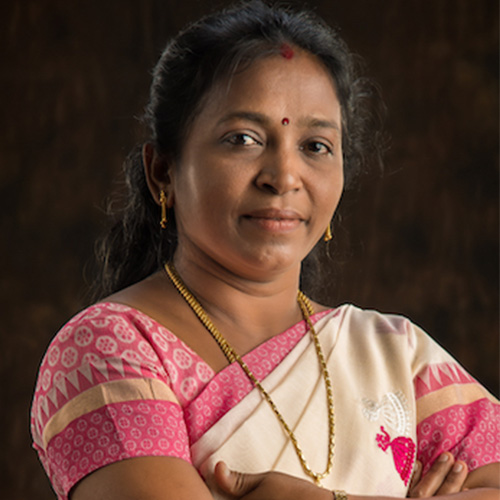 Subbiah Latha
Subbiah Latha India
Cohort 1
Project - Formulation and evaluation of magnetically triggerable smart tablets for improved ulcer therapy
Latha completed a bachelor’s degree in pharmacy from Dr. M.G.R. Medical University, Chennai in India and master’s and PhD in pharmacy from the Jadavpur University, Kolkata, India. Presently, Latha is an Associate Professor in the Department of Pharmaceutical Technology, Anna University. She has 20 years’ experience in higher education and research that she gained at Jadavpur University, Bharathidasan University and Anna University. Latha has broad knowledge in pharmaceutics / pharmaceutical engineering and pharmacology. Her research interests include the development of novel drug carriers using magnetic nanoparticles for targeted drug delivery. Latha is a visiting scientist to Technische Universität, Ilmenau, Germany; and the Yokohama National Universit and Shizuoka University in Japan. She has authored over 63 research publications and 12 book chapters and edited a book titled Nanobiopharmaceutical Technology – Applications and Perspectives published by Elsevier. She has so far supervised 46 postdocs, PhD and master’s students. She has been the recipient of the 2008 Tamil Nadu Young Scientist Fellowship for Young Scientists; the 2014 Tamil Nadu Young Women Scientist Award in Medical Sciences in recognition of outstanding research in pharmacy; the 2014 Late Smt. Shyama Dahiya Memorial Award for the outstanding pharmacy teacher and the 2018 Young Pharmacist Award from the Association of Pharmacy Professionals. She is a life member of many professional bodies.
Project - Formulation and evaluation of magnetically triggerable smart tablets for improved ulcer therapy
On the AIMF grant, Latha will be working at University of Ibadan, Nigeria with Professor Oluwatoyin A. Odeku. Latha is developing a smart magnetic tablet with omeprazole and ranitidine hydrochloride as model drugs and smart excipients including pH sensitive polymers for environment sensitive drug release. The proposed smart magnetic tablet shall aid the self-regulated drug release in the GI tract with increased gastric resident time, improved bioavailability and pharmacology at a relatively low dose, magnetic drug targeting at the site of action, less side effects due to reduced dose dumping, improved drug stability in the harsh GI environment and collectively an improved ulcer therapy. These smart tablets would provide self-regulated, on-demand, magnetic targeted and triggered drug delivery lead to significantly improved antiulcer therapy. The research results could be translated to the healthcare industry and clinical professionals for improved and smart drug delivery approaches.
 Angeline Jeyakumar
Angeline Jeyakumar India
Cohort 2
Project: Comparison of nutrition transition in regions at different levels of urbanization in Maharashtra (India) and Johannesburg (South Africa)
Home Institution: Savitribai Phule Pune University (SPPU), Maharashtra, India
Host institution in Africa: University of Johannesburg, South Africa
Angeline specializes in Public Health Nutrition. She currently serves as an Assistant Professor at School of Health Sciences, SPPU, where she has been since 2000. She coordinates post graduate courses in public health nutrition for health sciences and master's in public health (MPH) students. She is trained in applied epidemiology at Emory University, by Centers for Disease Control and Prevention (CDC), Atlanta, USA. Her research interests include maternal and child health, leading to studies in iron and vitamin D deficiencies among women of reproductive age. In the tribal regions of Palghar, Maharashtra, with DBT funding, she performed a randomised community trial to assess the effect of Water Sanitation and Hygiene (WaSH) interventions to prevent diarrhoea and undernutrition among children.
Project: Comparison of nutrition transition in regions at different levels of urbanization in Maharashtra (India) and Johannesburg (South Africa): Africa and India share common public health issues such as undernutrition among children, poverty, widespread infections, rapid urbanization and increasing non-communicable diseases. In India, economic growth has contributed to meagre reduction in poverty, widening the gap between economic classes. Similar is the inequality in Africa which has not changed in the past two decades. With the AIMF grant, Angeline will study dietary patterns and double burden of malnutrition in both countries at different levels of urbanization along with Dr. Hema Kesa, Director of Food Evolution Research Laboratory, University of Johannesburg, South Africa. Dr Kesa studies transition from indigenous foods.
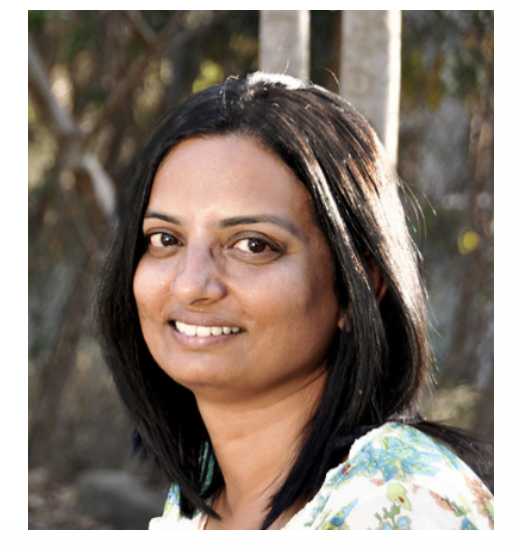 Rashmi Rodrigues
Rashmi Rodrigues India
Cohort 2
Project: Contextualising mobile phone applications for treatment support to Africa - Adherence and retention in care of patients with drug-resistant TB
Home Institution: St John’s National Academy of Health Sciences, Bengaluru, India
Host institution in Africa: Makerere University Lung Institute, Uganda
Rashmi Rodrigues is an Associate Professor in Community Medicine at St John’s National Academy of Health Sciences, Bangalore and is an affiliated Researcher at Karolinska Institutet, Stockholm, Sweden. Her research focuses on developing mobile technologies to support adherence to treatment in people living with HIV/AIDS and Tuberculosis (TB). For this she has developed a mobile application – v.Cure, via which patients with TB video record themselves consuming their medications. The video is sent to the healthcare provider who provides the patient with feedback regarding their adherence to treatment. Rashmi is a mentor in USAIDs Partnerships for Enhanced Engagement in Research (PEER), Women in Science, mentoring program cohort of 2020, which focuses on TB. Her research interests include developing health systems for improving outcomes in infectious diseases, including outcomes in populations that are underserved and hard to reach.
Project: Contextualising mobile phone applications for treatment support to Africa - Adherence and retention in care of patients with drug-resistant TB: The proposed work under AIMF involves developing a sustainable collaboration with Makerere University Lung Institute, Kampala, Uganda through her collaborator Dr. Winceslaus Katagira. Rashmi during her visit to Uganda will explore patient perceptions regarding the use of mobile technology for monitoring treatment adherence in patients with drug resistant TB and their healthcare providers. The work will provide guide modifications to the existing v.Cure mobile application that she has developed (currently used to monitor patients with TB in India using mobile video technology) for implementation in Uganda. The modifications to the v.Cure application will be contextually relevant to Uganda and will be supplemented by Dr. Katagira’s visit to St. John’s National Academy of Health Sciences, Bangalore, India. The collaboration will also enable transfer of knowledge, skill and technology between the two institutions involved in the collaboration.
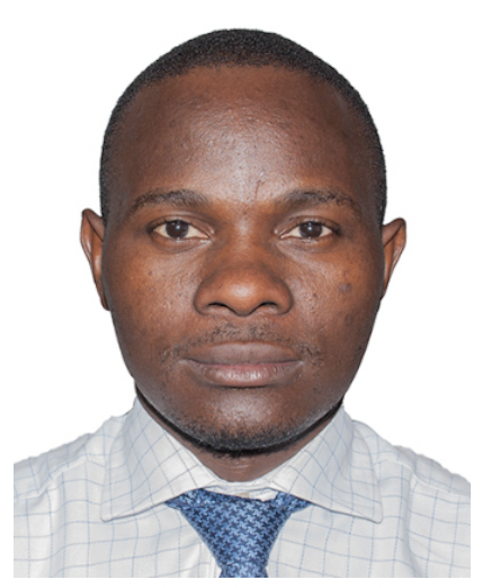 Katagira Winceslaus
Katagira Winceslaus Uganda
Cohort 2
Project: Contextualising mobile phone applications for treatment support to Africa: Adherence and retention in care of patients with drug resistant TB
Home Institution: Makerere University Lung Institute, Uganda
Host institution in India: St. John’s National Academy of Health Sciences, Bengaluru, India
Katagira Winceslaus is a Physician who completed his Masters degree in Internal Medicine in 2015 and has been working in the field of pulmonary medicine. Prior to his Masters, Katagira was actively engaged in TB related research, a field he continues to work in today. He is based at the Makerere University Lung Institute (MLI) in Kampala, Uganda where he is engaged in several research projects as a research fellow but also manages patients attending the Lung Institute clinic. He is a senior trial physician on the STREAM stage 2 Multi-Drug Resistant YB (MDR-TB) trial and is co-investigating on two post-TB related research projects at the MLI.
Project: Contextualising mobile phone applications for treatment support to Africa: Adherence and retention in care of patients with drug resistant TB: Although Directly Observed Therapy (DOT) remains the standard of care for patients with MDR-TB, it is labour intensive for health facilities, inconveniencing to patients and has been associated with stigma. Katagira’s project will pilot smart phone-based video observed therapy (VOT) to explore the feasibility and acceptability of integrating VOT for MDR in program settings in Uganda.
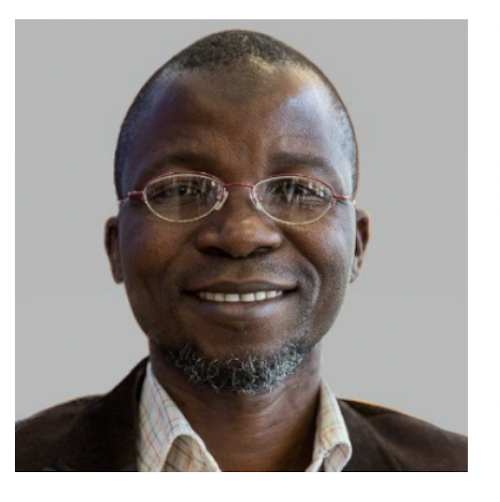 Mutiu Idowu Kazeem
Mutiu Idowu Kazeem Nigeria
Cohort 2
Project: Potential discovery of novel antidiabetic agents from some African medicinal plants
Home Institution: Lagos State University, Ojo, Lagos, Nigeria
Host institution in India: India Institute of Technology, Madras, Chennai, India
Mutiu Idowu Kazeem holds a PhD in Biochemistry from the University of Ilorin, Ilorin, Nigeria. He is a Senior Lecturer in the Department of Biochemistry, Lagos State University, Lagos, Nigeria. His research interests include drug discovery, phytomedicine and functional foods, with special attention on diabetes mellitus and ageing. The main thrust of his research is the search for safer, more effective, and affordable drugs from natural sources – medicinal plants, foods, and aquatic organisms. This is due to the undesirable side effects and sometimes resistance to the present synthetic drugs. He has published over forty (40) articles in reputable journals and serves as reviewer for many peer-reviewed ones. He is a member of the Nigerian Young Academy (NYA), affiliate of African Academy of Sciences (AAS) and Fellow of Africa Science Leadership Programme (ASLP).
Project: Potential discovery of novel antidiabetic agents from some African medicinal plants: Diabetes mellitus is a metabolic disorder characterized by alterations in carbohydrate, fats and protein metabolism that results from defects in insulin secretion and/or insulin action. The number of people suffering from the disease worldwide is increasing at an alarming rate with a projected 628.6 million people likely to be diabetic by the year 2045 as against 424.9 million estimated in 2017. The management of diabetes mellitus is considered a global problem and successful treatment is yet to be discovered. The underlying goal of all diabetes management is to maintain an adequate blood glucose concentration. The main approach used in the management of diabetes is oral hypoglycemic drugs such as biguanides (metformin), sulfonylureas (glimepiride), and α-glucosidase inhibitors (acarbose). However, these drugs have been shown to have undesirable side effects and high secondary failure rates. In addition, these drugs cannot be afforded by majority of people living in rural communities of developing countries because of their high cost. These limitations of currently available antidiabetic agents have prompted researchers all over the world to investigate alternative antidiabetic remedies. Many medicinal plants and foods have been studied for their possible hypoglycemic potential using both in-vitro and in-vivo models. However, there is dearth of information on the isolation of bioactive compounds responsible for their antidiabetic properties as well as mechanisms of their antidiabetic action. The aim of this project is to isolate the bioactive compounds responsible for the antidiabetic properties of some African medicinal plants and determine the biochemical mechanism(s) underlying their antidiabetic activities.
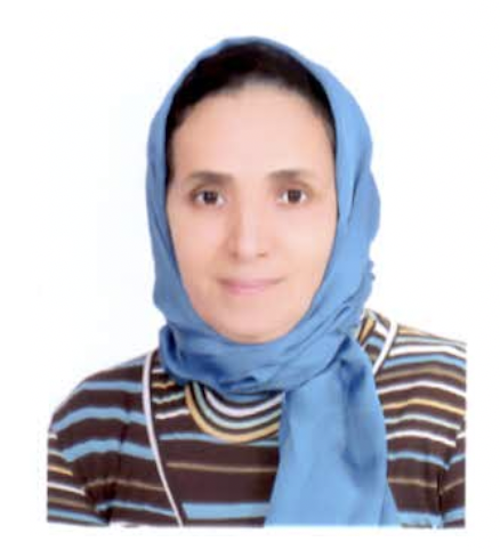 Nadia Touil
Nadia Touil Morocco
Cohort 2
Project: Recombinant group A Rotavirus VP6 (rVP6) as an attractive protein subunit vaccine against RVA disease for young children and ruminants in Morocco
Home Institution: Royal School of Military Health Service, Rabat, Morocco
Host institution in India: Indian Veterinary Research Institute, Bareilly, Uttar Pradesh
Nadia Touil is a full Professor at Royal School of Military Health Service, Rabat, Morocco and working in the Laboratorie de Recherche & Biosécurité at the Teaching Military Hospital of Rabat (HMIMedV, Rabat). She graduated from the College of Science (Animal Biology) from Mohammed I, University in Oujda in 1994. She completed her PhD in Sciences (Cell Genetics) from the Vrije Universiteit of Brussels, Brussels (Belgium) in 2002. She worked as a researcher at the Department of Immunology at the HMIMedV (Hôpital Militaire d'Instruction Med V de Rabat) from 2003-2008. From 2009-2014, she worked at the Biopharma company for Biological and Veterinary pharmaceuticals production. Her main task was to develop Group A Rotavirus vaccine. In 2014, she specialized for the diagnosis and interspecies transmission of Enteric Viruses. In 2017, she started working on the development of a recombinant RVA protein and works with the team of Dr YS Malik from the Indian Veterinary Research Institute, India.
Project: Recombinant group A Rotavirus VP6 (rVP6) as an attractive protein subunit vaccine against RVA disease for young children and ruminants in Morocco: To improve the control of group A rotavirus (RVA) infection and disease in children in Morocco, Rotarix and Rotateq live attenuated vaccines were introduced into the National Immunization Programme (NIP) in 2010 and 2014 respectively. The former vaccine has been associated with reduction of almost 50% of RVA hospitalization while, four years after its introduction, some vaccinated children were found to be severely affected with acute gastroenteritis (AGE). Unusual P [14] serotypes in their feces were detected and showed similarities to RVA excreted from bovine and small ruminants with AGE. In our context where many children and adults are living in close relationship with ruminants, P [14] RVA should be common. We are currently working on the development of an attractive recombinant protein targeting all RVA (from human and ruminants) using the BacMam viruses. Our partnership with the Indian Veterinary Research Institute at Uttar Pradesh lead us to advance the production of the rVP6 protein.